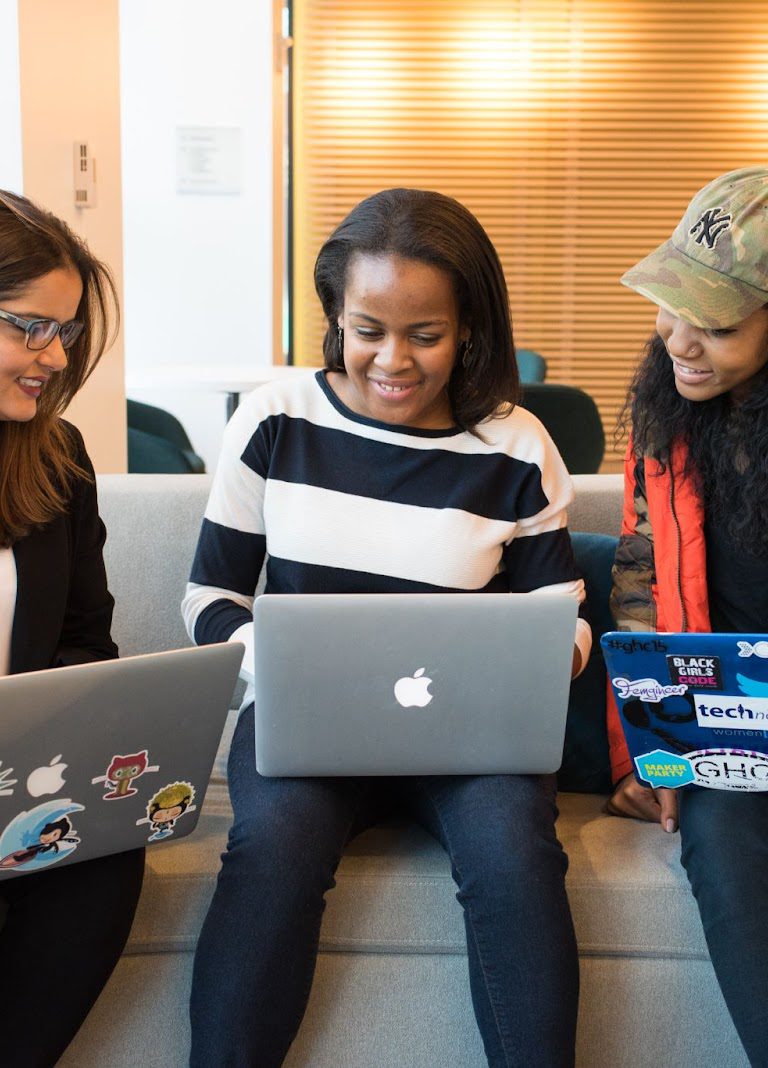“Child care has quietly been the backbone of our communities and economy, but the recent COVID-19 pandemic has exposed just how critical access to child care is for the functioning of our country. As we consider policies that can get the economy running again and reexamine how our federal, state, and local budgets reflect our priorities, it’s increasingly clear we must build a strong, resilient child care infrastructure that can support our families and the economy.”1

I bet you thought I wrote that. I didn’t.5
That paragraph was written by millennials at Next100 and GenForward. Millennials, now in their 20s and early 30s, are the largest generation in the U.S. workforce, making up roughly 35 percent of workers, and are soon to be the largest generation in the American electorate. Millennial women account for the vast majority of U.S. births,1 but many are delaying childbirth well into their 30s. And millennials are the most educated group in history; 61 percent are college graduates compared to 46 percent of baby boomers.2
It’s no leap to assume that same dedication to education would extend to their children. For millennial parents, child care isn’t just a service to get parents to work, but one that also helps children with school. Millennial parents aren’t just thinking about care, they’re thinking about learning.2
As revealed in a ground-breaking new survey from Next100 and GenForward, when weighing the decision to have children, access to affordable, high-quality child care actually plays a bigger role with millenials and Gen Zers (people ages 18 to 36) than student loan debt. Nearly nine out of 10 millennials and Gen Zers say the cost of child care is very or somewhat important in deciding whether or not to have children, according to the survey.4
Other survey results found the lack of affordable child care, alongside student loan debt and lack of affordable housing, affects the next generation’s decision to have children, further influencing their career and professional decisions.1 Overall, 81 percent of millennials and Gen Zers believe access to affordable high-quality child care is an important issue.4
Millennials Face Barriers When Starting a Family
Melinda is a millennial with a bachelor’s degree. Her student loan debt and the cost of child care are part of the reason she and her spouse haven’t had children yet. Another millennial, Jessica, is the mother of a 9-year-old. The high cost of child care forced Jessica to come up with a plan for care before having her daughter and has been a major factor in delaying a second child. With two post-secondary degrees and student loan debt, an increase in rent and a hope to buy a home, Jessica said the financial burden of child care worries her.
“Even now, when I only have to worry about before and after school care, it’s a significant part of my monthly budget, and any increase in that cost could render me unable to utilize before and after school care at all,” said Jessica.
Like many other millennials, once Jessica knew she wanted to have a child, her career and professional goals changed. “I actually switched my educational and career trajectory altogether and pursued an AAS in ECE and began working at a licensed child care facility in order to qualify for discounted child care. If I hadn’t, I have no doubt that I would not have been able to afford to work outside the home at all, and working at home was not an option at the time.”
Melinda is also seeing firsthand this trend of child care costs deterring millennials from starting or growing their families. “In my family and friends, I noticed that those around my age either haven’t started a family yet or they only have maybe one child,” she said. “But those that are like 10, 15 years older than us have multiple children.”
This support for child care comprises a multiracial coalition that crosses traditional ideological differences, even among those without children.
Millennials are sending a clear signal that access to child care is a pivotal public policy issue that not only affects the economy but also shapes personal decisions around when—or whether—future generations have children.1
The Unaffordability of Child Care
The COVID-19 pandemic has shown us the true importance of accessible and affordable high-quality child care for families and our economy. Even before COVID-19, the cost of child care for millennials was unaffordable nationwide. According to Child Care Aware of America, the annual cost of center-based infant care cost millennials more than half of their median salary in 2019.3
In North Carolina, based on the yearly millennial median income of $20,966, 44 percent of that is spent on an infant in center-based child care and 82 percent of that is spent on an infant and a 4-year-old in center-based child care.3

Future Generations
For two generations that have been affected by recessions, precarious employment, stagnant wages and high student loan debt, the cost of child care represents yet one more financial burden. These survey results show the next generation already deeply understands the challenge we are facing.1
The child care system we had before COVID-19 wasn’t sustainable, and it won’t be there after COVID-19 if we don’t do anything about it. Our federal and state governments can help this generation and our future generations by rethinking public investment in paying for child care. It can no longer happen on the backs of young parents. Otherwise, after COVID-19, the United States might have fewer future generations having children and fewer future generations in the workforce for the ones that will have children. Strengthening the child care system strengthens the backbone of our communities and economy.
[1] https://thenext100.org/millennials-and-gen-z-want-affordable-child-care/
[2] https://www.brighthorizons.com/employer-resources/millennial-parents
[3] https://www.childcareaware.org/millennial-map/
[5] Marsha Basloe is not a millennial. Jennifer Gioia is a millennial.



